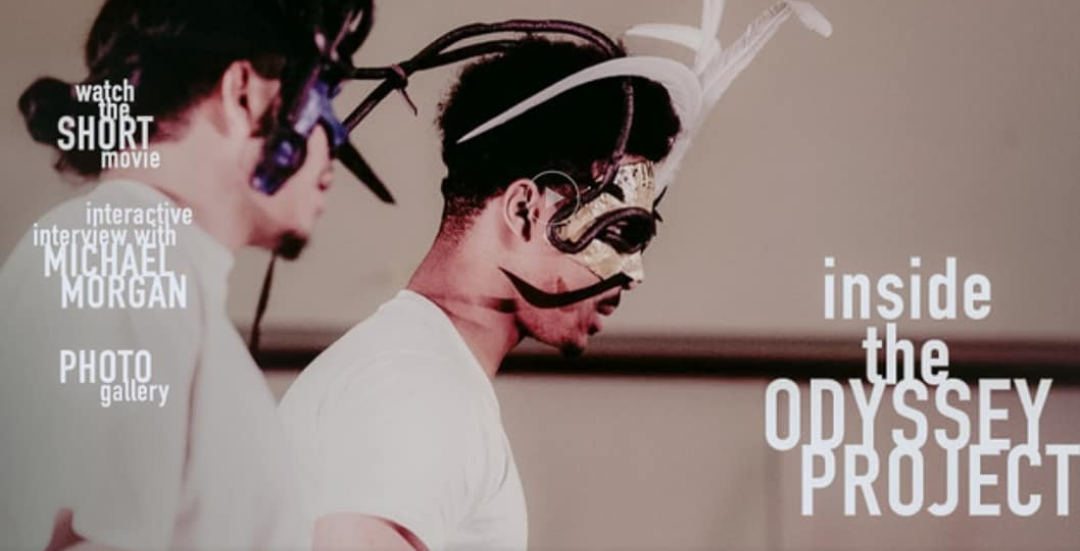This year’s J.P. Sullivan Memorial Lecture, which was scheduled to be delivered by Prof. Sasha-Mae Eccleston on May 17, has been postponed to the a.y. 2025-26. More details will be provided in due course.
Category: In the News
Erin Lam’s Lecture on Queer Orientations in Ovid’s “Ars Amatoria” Spotlighted on HFA Website
Erin Lam’s lecture on Queer Orientations in Ovid’s “Ars Amatoria” has been spotlighted on the website of the Division of Humanities and Fine Arts. A summary of the talk together with pictures taken during the event can be found here.
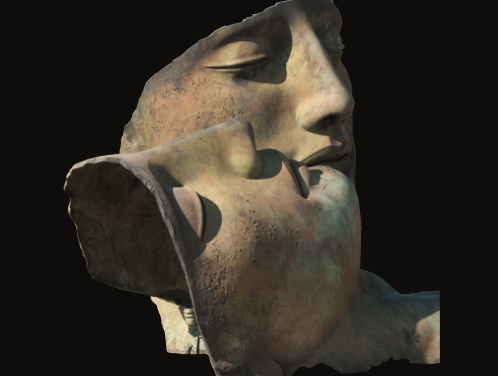
Volume on Classics & Queer Theory Co-Edited by Sara Lindheim Just Published!
The Routledge Handbook of Classics and Queer Theory, edited by our own Sara Lindheim with Ella Haselswerdt (UCLA) and Kirk Ormand (Oberlin College), has just been published. The volume, which convenes an international group of experts working on the classical world and queer theory and features an expansive array of methodologies applied to the interdisciplinary field of Classics, seeks to explore the vast – and increasingly uncharted – intersections of the queer and the classical.
More information, including a detailed table of contents, can be found here.
Congratulations, Sara!
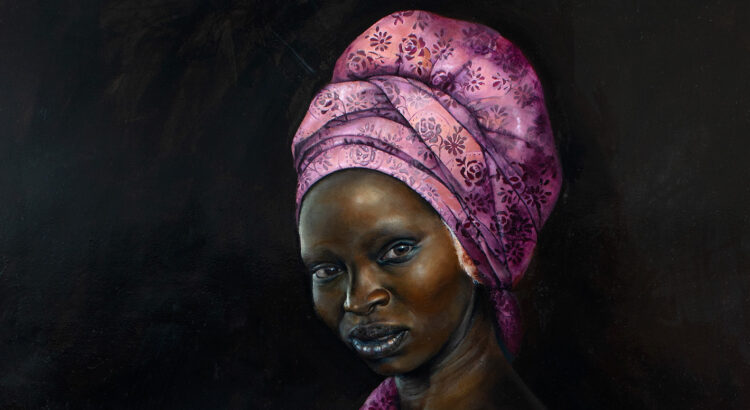
Exhibition Curated by Helen Morales Covered on CNN!
The exhibition “Harmonia Rosales: Master Narrative,” currently on display at the Spelman College Museum of Fine Art in Atlanta, has received coverage on CNN. The exhibition is an expanded and transformed version of “Harmonia Rosales: Entwined,” which was conceived and curated by Helen Morales, the Argyropoulos Professor of Hellenic Studies in our Classics Department, and was first shown at UCSB’s AD&A Museum in 2022.
The exhibition features paintings by the Afro-Cuban American artist Harmonia Rosales that put Yòrúba and Greek mythologies in dialogue, prompting discussions about about traditions,
eurocentrism, racism, memory, and institutional responsibility, in and beyond many Humanities
disciplines, as well as in the public sphere.
The earlier version of the exhibition had already attracted international attention: it was reviewed on the well-known on-line journal Hyperallergic and covered in Mary Beard’s blog for the Times Literary Supplement.
Congratulations, Helen!
Sonia Sabnis’ Lecture Spotlit by HFA
Read a summary of Sonia Sabnis’ recent lecture – “Daemon Lovers and Monstrous Pregnancy: Psyche in 20th-Century America” – on the Humanities and Fine Arts website.
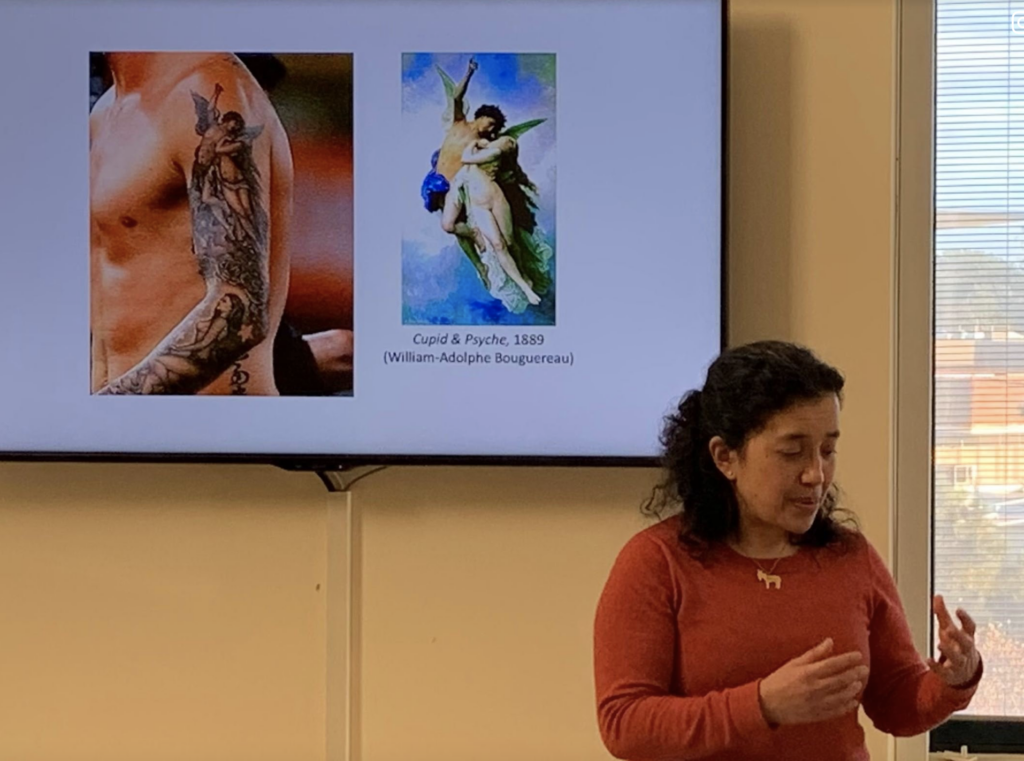
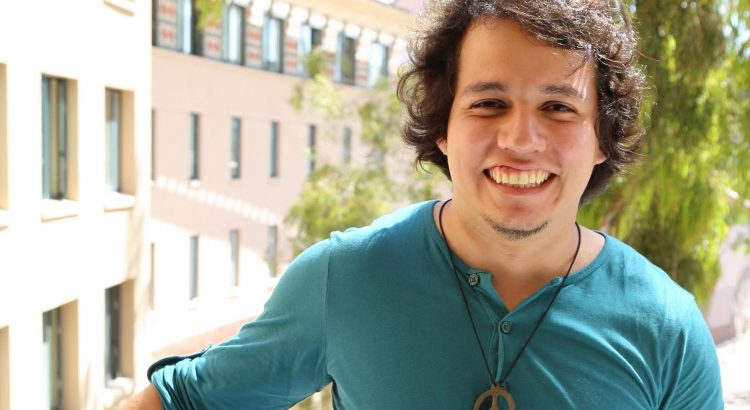
Andrés Carrete’s Article Published in the Classical Receptions Journal
“Humanity and Revolution in José Fuentes Mares’ La joven Antígona se va a la guerra,” written by Andrés Carrete, one of the graduate students in the Classics department, has been published in the prestigious Classical Receptions Journal.
In this article, Andrés offers a new analysis of José Fuentes Mares’ adaptation of Sophocles’ Antigone, which premiered a week after the biggest student massacre in Mexican history, the Tlatelolco Massacre of 2 October 1968. By showing how this play differs from other Latin American adaptations of Antigone, Andrés enriches our understanding of the reception of Sophocles’ play as a response to oppression.
The article can be accessed here.
Congratulations, Andrés!
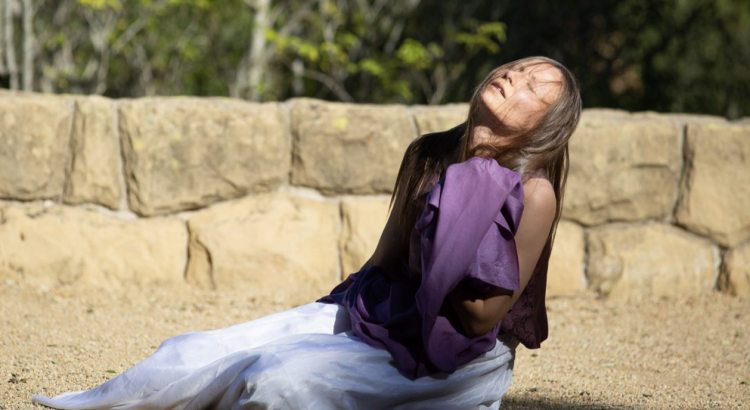
PersAphone: Classics in the Time of COVID-19
In order to reflect upon and express the feelings of grief, loss, and nostalgia caused by the COVID-19 pandemic, Olga Faccani – a Ph.D. candidate in Classics – and Heena Yoon – a Ph.D. candidate in Music – have created a short film inspired by the myth of Persephone and Demeter. Titled PersAphone, the film opens with a summary of this Greek myth and then focuses on the sorrow of Demeter, whose feelings are embodied by the dancer Meri Takkinen. With their reinterpretation of this ancient story, Faccani and Yoon wanted to “create a virtual space of empathy, shared emotions, and catharsis.”
More information on this project, which has been supported by the Ancient Worlds, Modern Communities initiative of the Society for Classical Studies, can be found here.
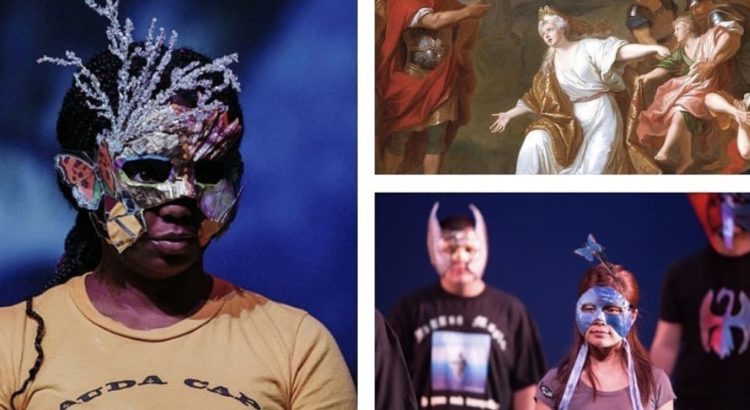
The People’s Voice: A Groundbreaking Online Course
Professor Michael Morgan, who is Senior Lecturer in the Department of Theater & Dance and holds an affiliation with Classics, will be offering a groundbreaking online course this summer entitled The People’s Voice. Participants will collaborate with incarcerated female students at the Ventura Youth Correctional Facility on re-envisioning the text of the Trojan Women, an ancient Greek play by Euripides that follows the fates of the women of Troy after their city has been sacked, their husbands killed, and their families are taken away as slaves. Using digital storytelling and reading this story through a contemporary socio-political lens, students will work together as artist-activists to re-construct the tragedy and offer counter-narratives to the devastation and despair of the play’s heroines. The People’s Voice aims to broaden undergraduates’ learning experience by bringing them into a creative partnership with a marginalized population, a partnership founded on community-building and mutual respect.
The course (THTR 43/143) will run in Session G and is open to all majors. Olga Faccani, a Classics graduate student with interests in Greek drama and public humanities, will serve as Teaching Assistant.
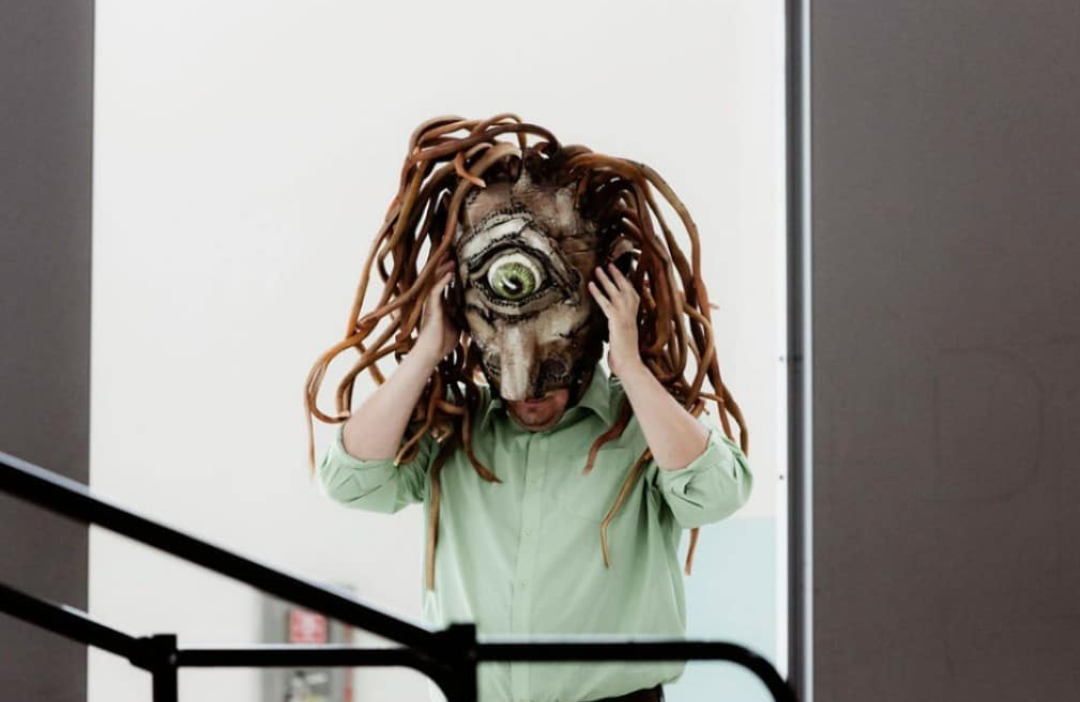
The People’s Voice expands on Professor Morgan’s paradigm-shifting The Odyssey Project, a collaborative theater process between incarcerated youth and undergraduates in which participants use Homer’s Odyssey to explore the mythic elements in their lives to and reconstruct the epic poem in their own voices (https://odyssey.projects.theaterdance.ucsb.edu). The Odyssey Project is featured in an interactive web documentary, Inside the Odyssey Project, directed by Luc Walpoth (https://www.insidetheodysseyproject.com).
